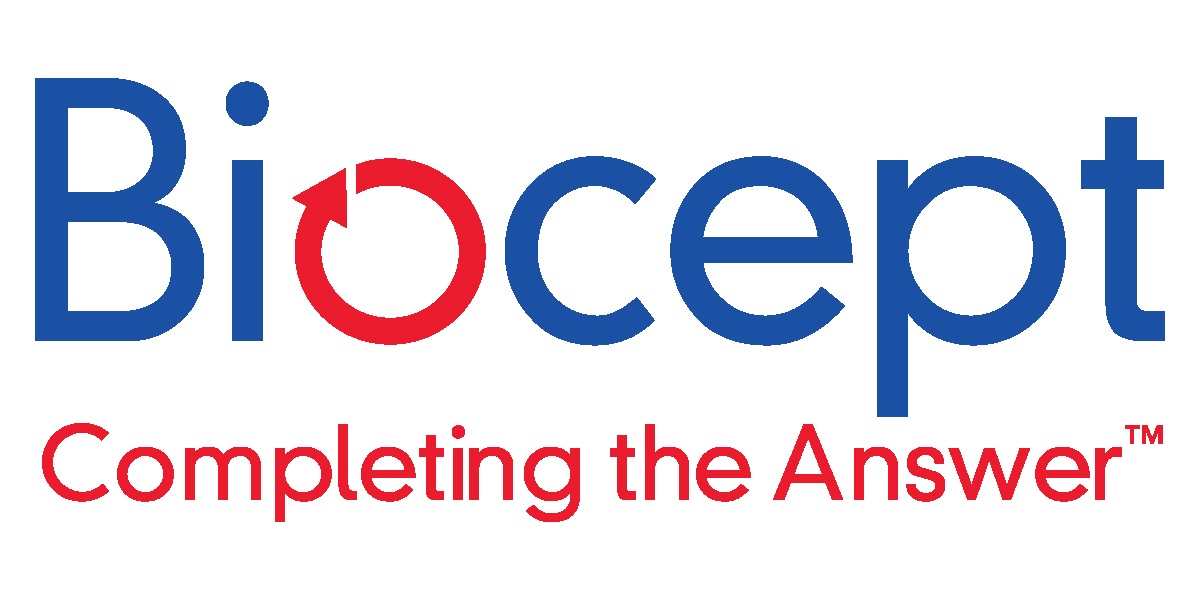
Medicare Issues Local Coverage Determination for Biocept’s Target Selector™ Breast Cancer Assay to Detect the HER2 Biomarker from Circulating Tumor Cells
Reimbursement decision expands access to testing that provides critical information used to guide targeted treatment options for patients with breast cancer
Company provides updates on other initiatives including CNSide™, its proprietary test for neuro-oncology, and COVID-19 testing volume, which has now reached over 450,000 samples
About 20% of breast cancers are HER2-positive, with metastatic cancers more likely to be HER2-positive and approximately 20% of HER2-positive patients experiencing recurrence each year. Given the efficacy of various anti-HER2 therapies, testing for HER2 is one of the most important sources of information used by oncologists in making treatment decisions for patients with breast cancer. As a result, guidelines for breast cancer recommend that all patients with new primary or newly metastatic breast cancer be tested for HER2. Traditionally, testing has been performed using tissue. However, adequate tissue from the original biopsy may not be available, and additional invasive biopsy procedures are often impractical and associated with complications.
“Target Selector is a highly sensitive assay for identifying HER2 status that is less invasive, more time-efficient and more cost-effective than tissue biopsy,” said
The MolDx program was developed by CMS to identify and establish coverage and reimbursement for molecular diagnostic tests. To receive a favorable MolDx coverage determination, assays must demonstrate clinical utility, fulfill the CMS reasonable and necessary criteria, and meet analytical and clinical validity standards. The LCD, which includes other cancer biomarkers in addition to HER2, is posted on the CMS website and can be accessed here.
“This coverage determination for our Target Selector assay is important for physicians and patients, as it expands access to a test that can provide the opportunity to find answers that may otherwise not be available from traditional approaches,” said
Biocept’s combined cell-based and cell-free liquid biopsy tests assess actionable cancer biomarkers from a patient’s blood and, uniquely, from cerebrospinal fluid (CSF) as well. Following the full commercial launch of its CSF assay, CNSide,
The company also continues to provide COVID-19 testing services to help manage the impact of COVID-19 in long-term care facilities, schools and other public facilities it serves.
About
Forward-Looking Statements Disclaimer
This news release contains forward-looking statements that are based upon current expectations or beliefs, as well as a number of assumptions about future events. Although we believe that the expectations reflected in the forward-looking statements and the assumptions upon which they are based are reasonable, we can give no assurance that such expectations and assumptions will prove to be correct. To the extent that statements in this news release are not strictly historical, including, without limitation, statements regarding the benefits that can be provided by our Target Selector assay, our ability to receive FDA breakthrough device designation for CNSide, and the ability of our assays to provide physicians with clinically actionable information for treating and monitoring patients diagnosed with a variety of cancers, such statements are forward-looking, and are made pursuant to the safe harbor provisions of the Private Securities Litigation Reform Act of 1995. The reader is cautioned not to put undue reliance on these forward-looking statements, as these statements are subject to numerous risks and uncertainties, including the risk that the prevalence of HER2 in breast cancer patients will decline in the future to a point where guidelines for breast cancer may no longer recommend that all patients with new primary or newly metastatic breast cancer be tested for HER2, which in turn would impact demand for our Target Selector assay and could also impact its LCD, the risk that we may not receive breakthrough device designation by the FDA for CNSide, and even if we do, such designation may not lead to a faster development, regulatory review or clearance process, and it may not increase the likelihood that the assay will receive marketing authorization from the FDA, and the risk that our products and services may not perform as expected. These and other risks are described in greater detail under the "Risk Factors" heading of our Quarterly Report on Form 10-Q for the quarter ended
View source version on businesswire.com: https://www.businesswire.com/news/home/20210721005281/en/
Media Contact:
asampson@sampsonprgroup.com, 562-304-0301
Investor Contact:
Jcain@lhai.com, 310-691-7100
Source:
